English bulldog: Breed profile
What you need to know about the English Bulldog, including temperament, special care, and health issues.
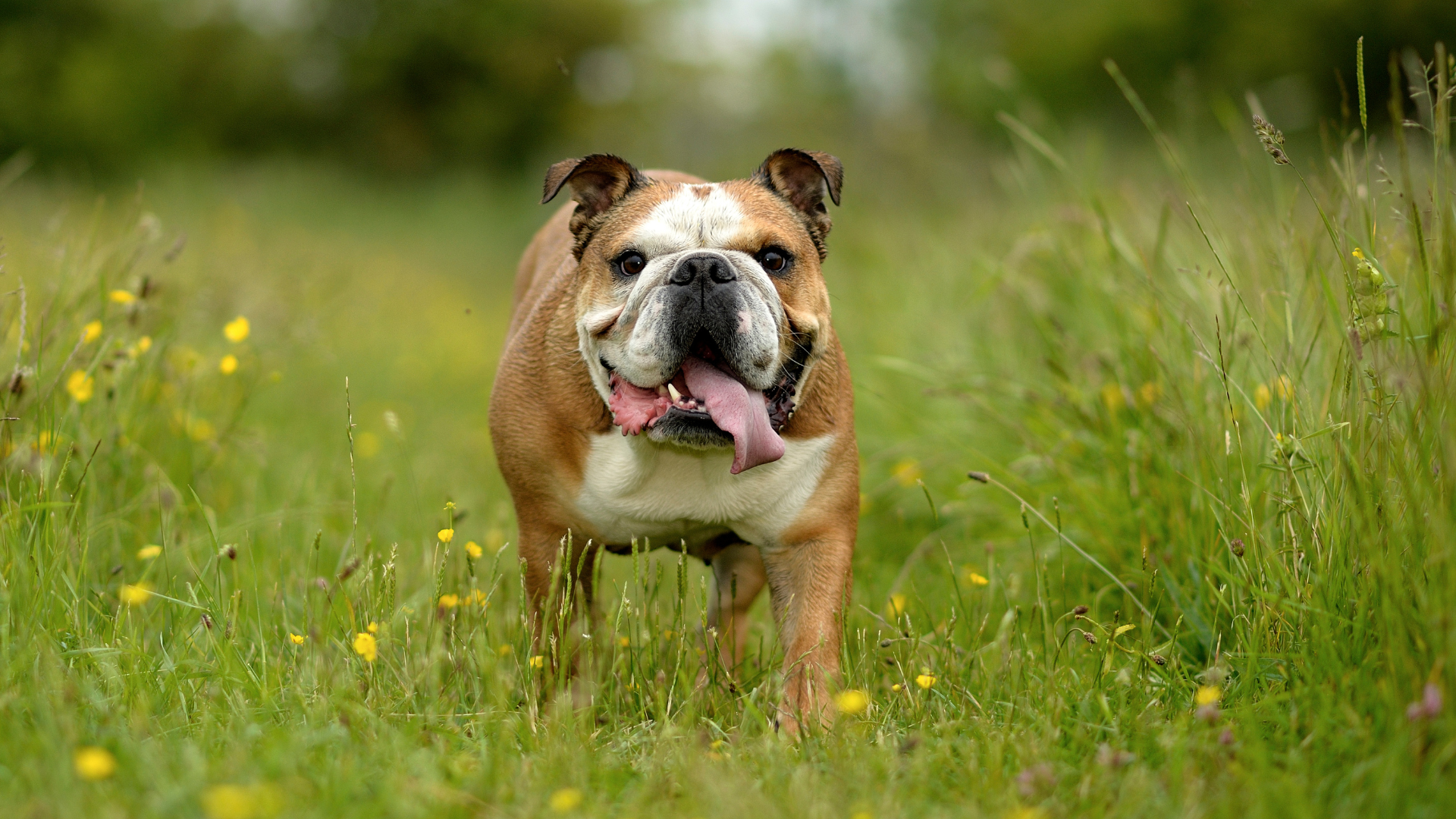
The English Bulldog is one of the most popular dogs in the US, thanks to their gentle, affectionate, and friendly nature. These stocky little dogs have some adorable features, like their pushed-in nose, wrinkled skin, and short, wide-set legs. They're very patient, making them great family dogs and they don't require as much exercise as some breeds do.
When it comes to training, they can be slightly stubborn at times, but it's nothing that consistency, positive reinforcement, and the best dog treats can't fix.
English Bulldog were used for bull-baiting in 17th century which is where they got their name from. For sport and slaughtering purposes, the dogs were trained to bite onto the bulls' noses and bring them to the ground. This was banned in 1835 which almost led to the breeds' extinction, but they were saved by a group of bulldog enthusiasts who started breeding them to be friendlier, stockier, and shorter-faced.
With the help of an expert vet and a dog behaviorist, we've explained their temperament, trainability, and health issues below. We've also revealed whether they bark a lot, the special care they require, and if they shed their coat.
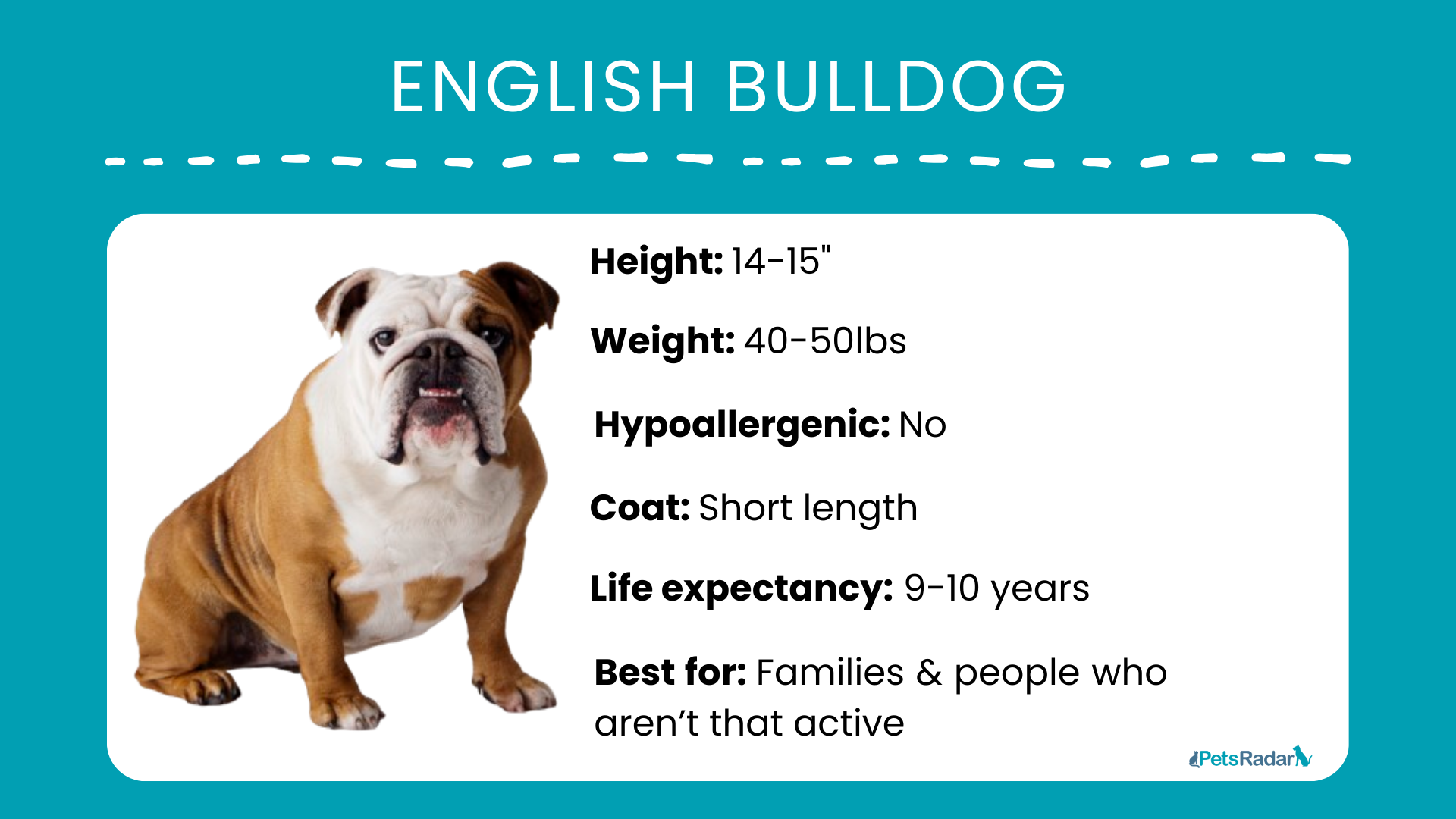
Bulldog breed temperament and personality
A medium dog breed, Bulldogs are usually calm, gentle, and friendly, according to Ruth Mollema (a dog behaviorist and Strategic Partnership Lead at Pets4Homes). Due to their protective nature, they make excellent companions and watchdogs for their families.
She says: "They are known for their affectionate nature and strong attachment to their family. Despite their somewhat tough exterior, they’re usually very sweet and love lounging around the house. [...] Their loyalty to their family often means they’ll go out of their way to ensure everyone feels safe.
"Though not overly aggressive, bulldogs are courageous and will stand their ground if they sense a threat. While they may seem a bit lazy and are generally low-energy dogs, they do also have bursts of playful energy."
Get the best advice, tips and top tech for your beloved Pets
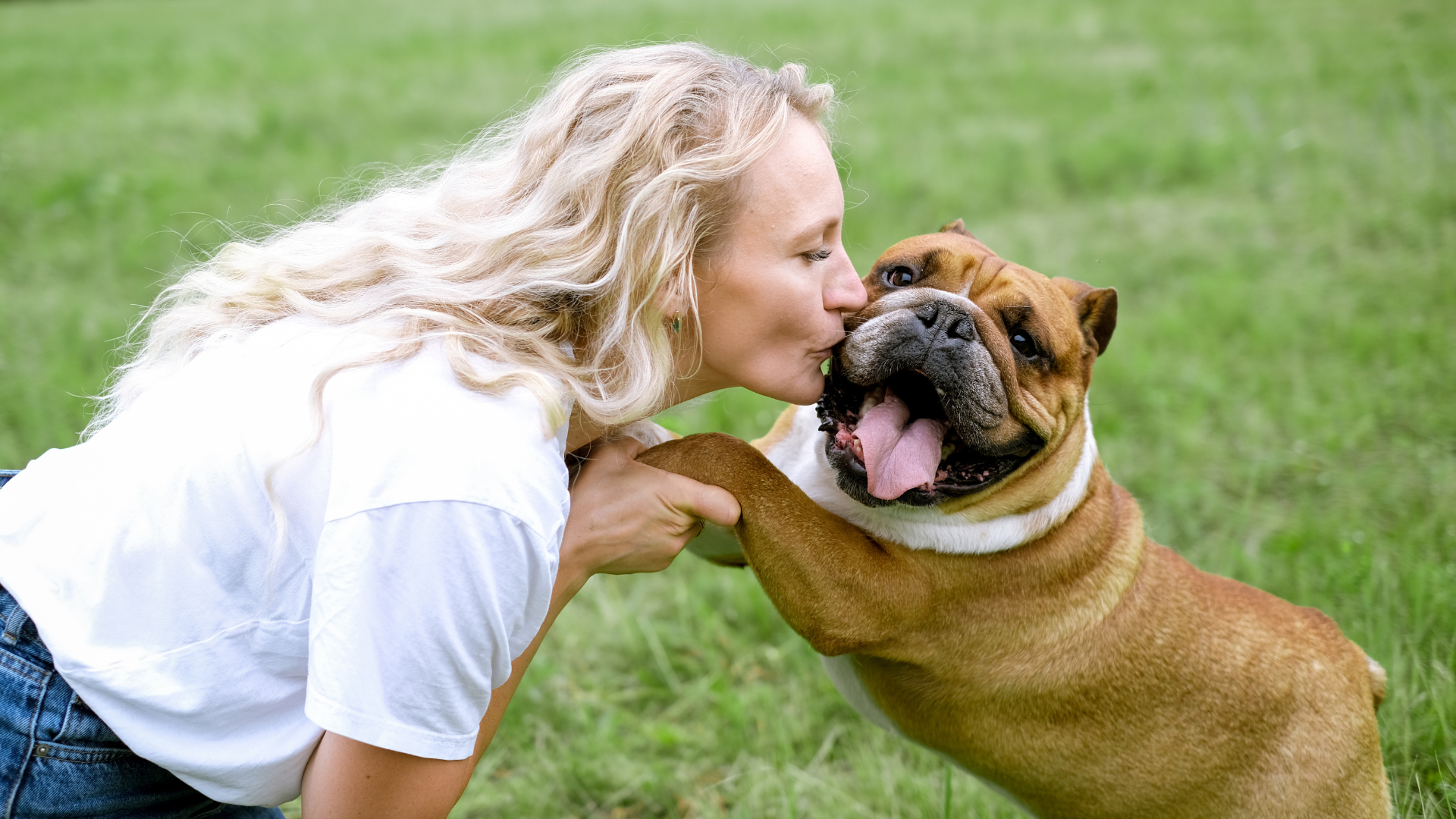
Are bulldogs easy to train?
Due to their stubborn personality, bulldogs are not the easiest breed to train, according to Ruth. However, they are intelligent so with some consistency and patience, it is possible to train them at their own pace.
Ruth says that they respond well to positive reinforcement, so giving them treats and praise will go a long way toward results. Like with any breed, it's always important to start training and socializing them early on to prevent behavioral problems.

Do bulldogs shed a lot?
Bulldogs' coats are short, smooth, and relatively easy to maintain, according to Ruth. Unlike breeds like the German Shepherd, they don't shed too much and you can manage their fur through regular brushing. The best dog brushes will keep their coat in tip-top condition, but as their skin is sensitive, you should keep a look out for irritation and signs of allergies.
This brush is designed for bulldogs and pitbulls who have short hair and sensitive skin. It removes dead skin cells, hair and dirt, and it's made from a porous stone.
Are bulldogs good with children?
Yes, bulldogs can be great with children. Ruth says that their tolerant, patient, and gentle nature makes them brilliant family pets and they enjoy being around little ones.
She adds: "They are calm and tolerant, which is why they’re so good at adapting to busy family life. However, like any breed, it’s always important to supervise interactions between young children and dogs to ensure safety."
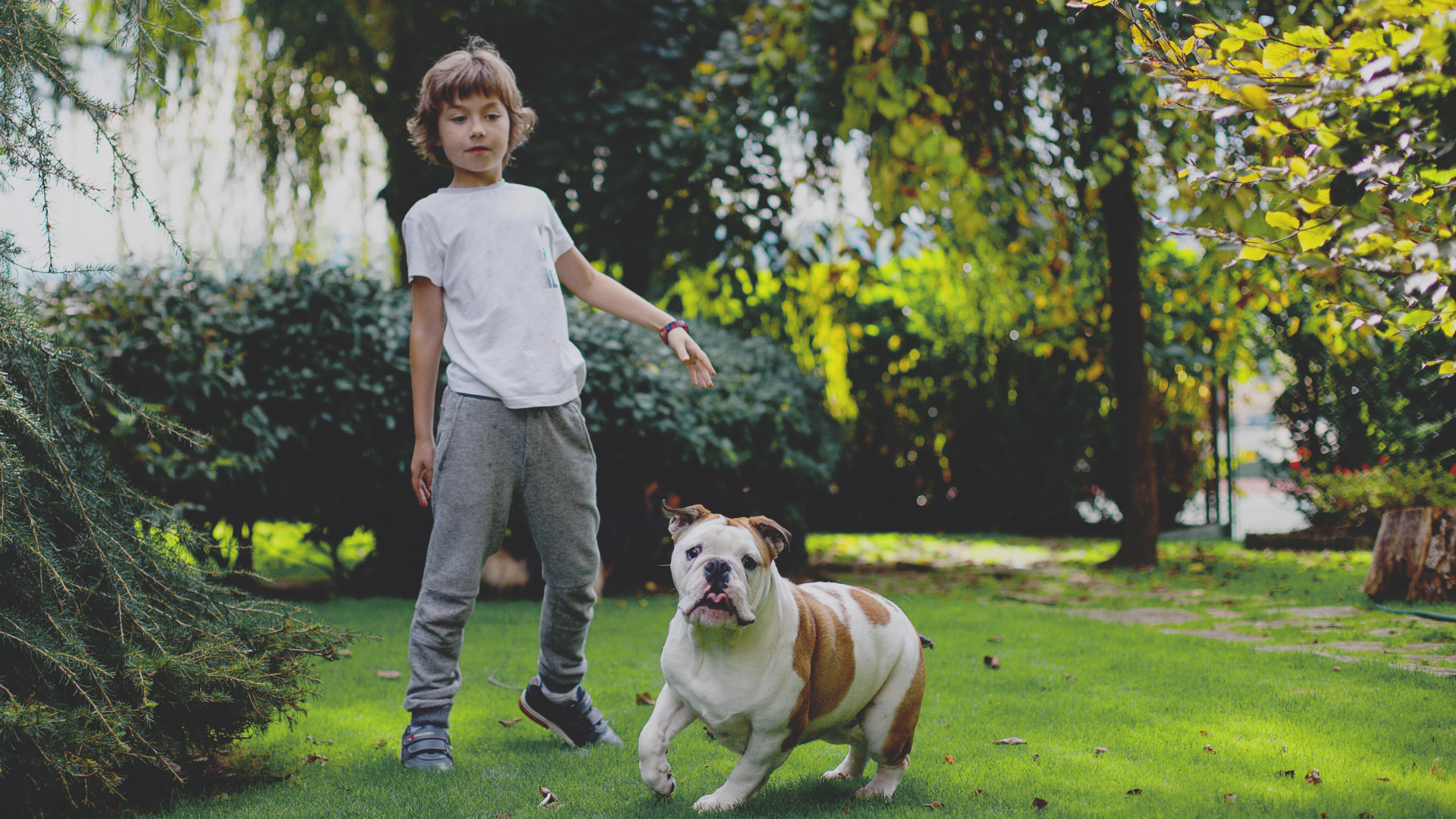
Do bulldogs bark a lot?
No, bulldogs don't bark a lot and are usually quite quiet, according to Ruth. Instead, you'll probably hear their infamous grunting and snoring which is caused by their small nostrils and short snouts.
Ruth says: "If they sense danger or something unusual, they may bark to alert their owners. Overall, they are not the type of dog to bark excessively without reason."
Are bulldogs prone to any health conditions?
Bulldogs are a brachycephalic dog breed, which means they have a short snout, small windpipe, narrow nostrils, and a long soft palate. As well as being prone to snoring, they're also more affected by heat stroke and can develop breathing distress from over-exertion, says Dr. Godfrey. They're also prone to eye problems, like corneal ulcers, dry eye and cherry eye.
Dr. Godfrey adds: "Many bulldogs develop skin allergies, and their facial skin folds and corkscrew tails can harbor bacteria, making them prone to skin infections. Because their heads are so large in comparison to their pelvis, they often struggle to give birth to puppies, and a cesarean section is usually needed."
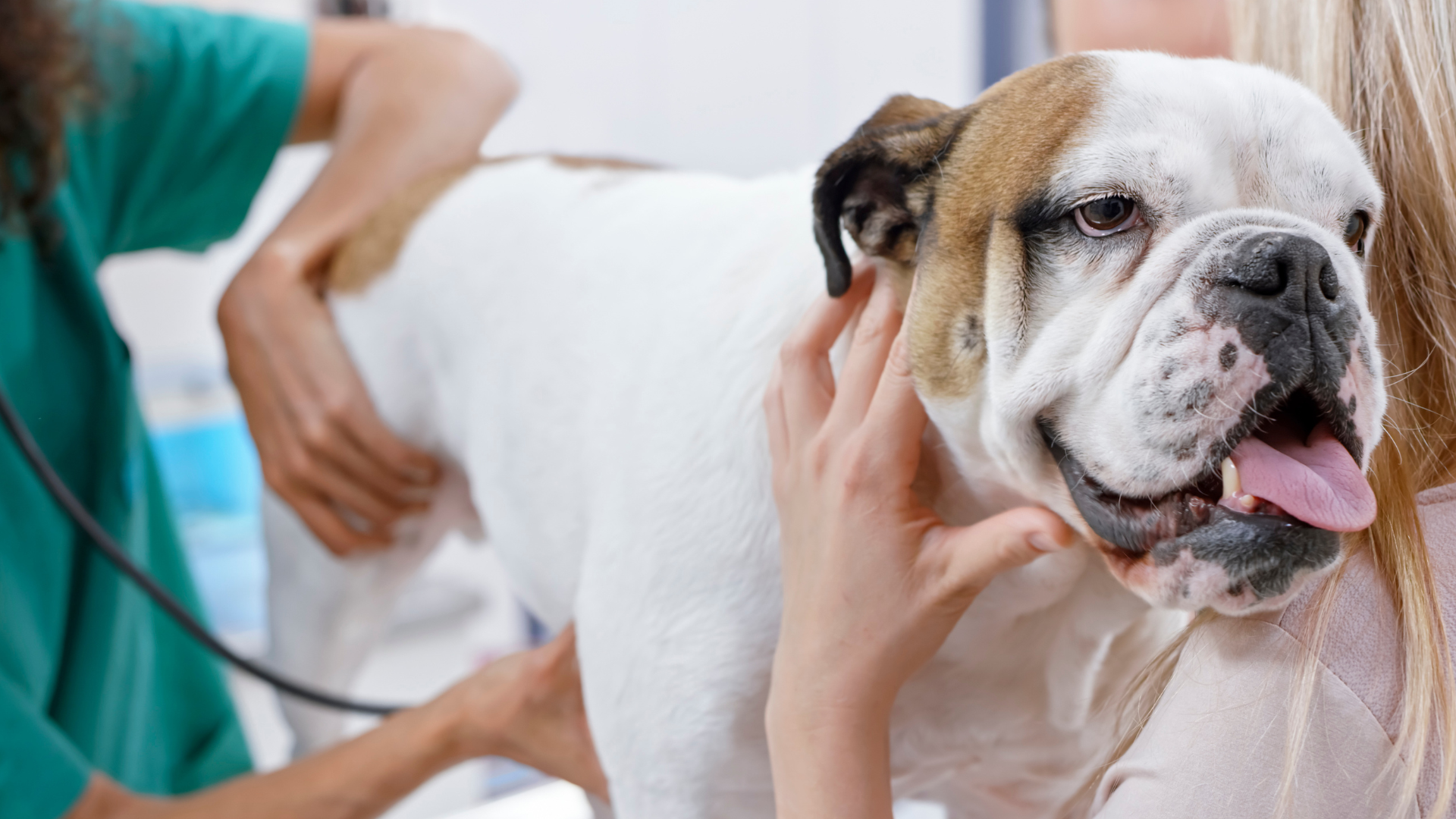
Do bulldogs require any special care that other breeds might not need?
Dr. Godfrey recommends the following care for bulldog breeds:
- Keep their skin folds clean and dry to prevent skin infections
- Keep them cool in the summer as they're easily affected by warm weather and exertion. You should take them for walks in the cooler parts of the day and check their breathing and gum color
- They might need surgery if they're often in a state of breathing distress. This will involve widening the nostrils and trimming the soft palate and tissue near the windpipe entrance.
Wisdom Panel Breed Discovery DNA Kit | Amazon
Not sure exactly what breed your dog is? This kit screens for 365+ breeds – because knowing every detail about your dog helps you understand how best to care for them.
What is rage syndrome in bulldogs?
Vet Dr. MacMillan says: "Rage syndrome is a very rare condition that causes dogs to act out of character suddenly. The dog may attack unpredictably, without warning or any obvious triggers. There is speculation as to whether there is an underlying partial seizure episode occurring, which affects the dog’s brain activity. Episodes may last minutes to hours and seem to happen out of the blue.
"The condition is most associated with English springer spaniels, cocker spaniels, bull terriers, and retrievers. It is not something that I have personally witnessed in bulldog breeds, though any dog could potentially be affected. I haven’t come across anything that leads me to believe that bulldogs are more susceptible to it than any other type of dog."
The Complete Guide To English Bulldogs | Amazon
Using interviews with eight top English Bulldog breeders, this book has created an in-depth look at what it really takes to successfully live with, raise, and train an English Bulldog.
You might also want to read about French bulldogs and American Bulldog. Or, learn about the differences between French Bulldogs vs English Bulldogs.

Hannah graduated from the Royal Veterinary College in 2011 and began work straight away at a busy mixed practice. Initially, she treated all species but focused on small animals from 2014. She has a passion for soft tissue surgery, ultrasound, and canine and feline dentistry, having completed additional training in these areas.
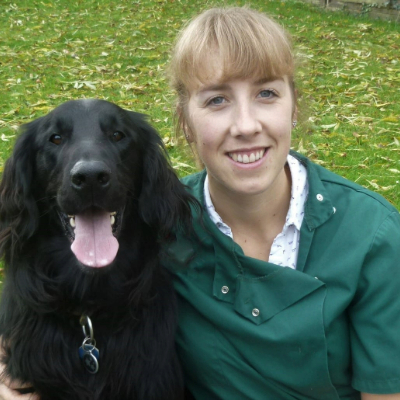
Rebecca is a vet surgeon who graduated in 2009 from the Royal Veterinary College in London. She has a wealth of experience in first opinion small animal practice, having done a mixture of day-to-day routine work, on-call emergency duties and managerial roles over the years. She enjoys medicine in particular and she is proud to have recently achieved a BSAVA postgraduate certificate in small animal medicine (with commendation). She writes on various feline and canine topics, including behavior, nutrition, and health.

Megan is a Staff Writer at PetsRadar, covering features, reviews, deals, and buying guides. She has a wealth of experience caring for animals, having grown up with dogs, cats, horses, guinea pigs, and more throughout her life. She studied BA Journalism at the University of Westminster, where she specialized in lifestyle journalism and was editor of Smoke Radio’s lifestyle website. Megan works alongside qualified vets and accredited trainers to ensure you get the best advice possible. She is passionate about finding accurate and helpful answers to your pet-related questions.



